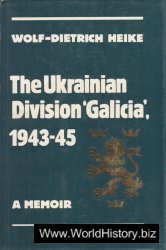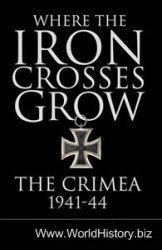THE FREEDMAN, THE EX-SLAyis an ordinary Roman very difficult to imagine because there is not even a remotely similar category in Western societies. Freedmen have attracted a good deal of attention in Roman social history because the elite interacted with them in significant and often negative ways. Ironically, their visibility in prejudiced elites’ sources has made their actual lives quite invisible. Freedmen or freedwomen are much like other free ordinary folk, but their situation and possibilities are different enough, and the animus and misunderstandings regarding them misleading enough, to call for a separate treatment.
The animus comes out in the elite’s literary portrayal of the freedmen, a portrayal that has often been taken as a true description of freedmen in general. The treatment of such authors as Juvenal, Martial, Tacitus, anc Suetonius depicts freedmen who were insulting at least and anathema at most to the ruling men of the empire, and to their literary mouthpieces. The origin of this attitude is in the dynamics of slavery and freed slaves within the elite household. I will describe in detail below the circumstances and life of freedmen; in summary here I just note that exslaves, like slaves, were absolutely essential to the 'leisure class’ life of the aristocracy. And more than just a source of labor, ex-slaves in particular represented the most successful of an elite’s slaves. These were the slaves who had been put in charge of affairs in the household and on rural estates. These were the slaves who had been financed in business ventures on behalf of the master. It was only through such dependent men (and at times women) that a master could manage and control the resources to produce the wealth that produced the leisure. In return for the 'privilege’ of being a slave or ex-slave in the master’s household, the slave or freedman owed obedience and duty to the master and his interests. As far as the master was concerned, the position was one of perpetual dominance (for a slave) and subalternship (if a freedman). If they accepted this position, then all was well. But, in fact, a man was often employed in a responsible task because he was exceptionally talented; with freedom could come an assertion of that talent for his own purposes, leading to significant or even vast wealth. With the talent and wealth came the challenge to and extreme tension for the aristocracy that always arose when 'outsiders’ qualified by ability and money challenged the existing elite for influence and power. But with freedmen it was much worse than had the challenge come from mere nouveaux riches - these were men who had once been slaves, a condition inherently and inextinguishably degrading in the eyes of the leaders of society. It is this revulsion at status-crashing that turned what might have been mere disdain into active loathing.
And worst of all were the ex-slaves of the imperial family. I do not include these freedmen in general here as they are set apart from other ordinary freedmen by their special relationship to the imperial household, but their role in creating the perception of the elites must be noted. The imperial freedmen derived prestige from association with the ruler of the rulers. They were relied upon to run the machinery of the empire (for the empire was thought of as a great household by the emperor, to be managed like any other 'estate’). They could take advantage of their position to assert themselves (as agents of the emperor) blatantly at the expense of the elite, who had to do as the emperor wished or suffer the consequences. So the irksomeness was doubled: the elite had to bow to the emperor, and also to his agents, who once had been slaves.
The hatred of imperial freedmen especially, but uppity freedmen in general, brought scathing opprobrium to focus on this societal group. To keep them at bay, they were disparaged as forever despised, inferior; they were marked by law and custom as unworthy of mixing with the elite in politics or marriage or anything. All this is understandable given the mentality of the elite. But what all too often happens is that this assessment of freedmen is generalized to provide the context and even details of lives of freedmen in general. I seek to retrieve the outlook of ordinary freedmen and to show how large the gulf was between their lives and negative descriptions of freedmen provided by the elite.
Alongside the alleged ancient hostility toward ordinary freedmen lies the modern misunderstanding that sees the freedmen as the bourgeoisie. Just as the ancient aristocracy limned freedmen according to their prejudices, over the past two centuries many have tried to find a 'middle class’ in the freedmen because they were often engaged in commerce and industry. But they are no such 'class’ in any sense that fits the actual conception of a 'middle,’ nor do they fit the sociopolitical implications of a bourgeoisie. Fortunately, many scholars now avoid such descriptions, but they are found in older works, and in careless popular accounts.
A more pernicious nuance to the discussion of freedmen comes with racist overtones. Moderns have taken their cue from the vehement accusation of Tacitus and Juvenal about 'Orontes flowing into Tiber.’ Starting with a conviction that peoples of the Eastern Empire (the Orontei Is a river in Syria) were effeminate, intriguing, loathsome folks in general, the elite was convinced that slaves mostly came from there (or, at least, the ones who became uppity freedmen) and were displacing native-born, virile, moral Italians in Rome. This was leading to a definite decline in the quality of Romans as a whole, they thought. Early in the twentieth century the great ancient historian Tenney Frank wrote an extremely influential article in which he used epigraphic evidence from Rome to 'prove’ the ancients right; he concluded that during the empire only io percent of Romans had 'pure’ Italian blood and that fully 8o percent of the city ol Rome were freedmen and their descendants from the eastern, 'oriental’ part of the empire. Read today, his analysis is blatantly Eurocentric, racist, and a paradigm of orientalism. But his statistics and conclusions so fit the ancient elite’s own prejudiced views that they were not seriously questioned by A. M. Duff in his fundamental 1928 treatment of freedmen ('It seems, then, that freedman and their descendants in a great measure ruined Rome _ Manumission, if it has been directed aright, need not have worked with such deplorable effects upon the population _ The influx of Oriental blood would not have been so overwhelming’); Frank’s premises and 'evidence’ were influential even as late as the 1960s. It is time once and for all to eliminate such thinking from any discussion of freedmen.




 World History
World History









